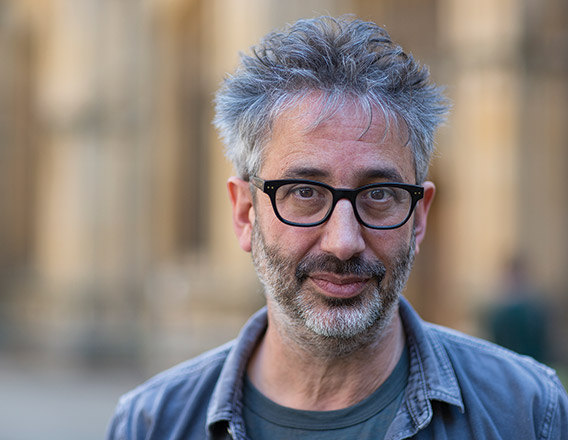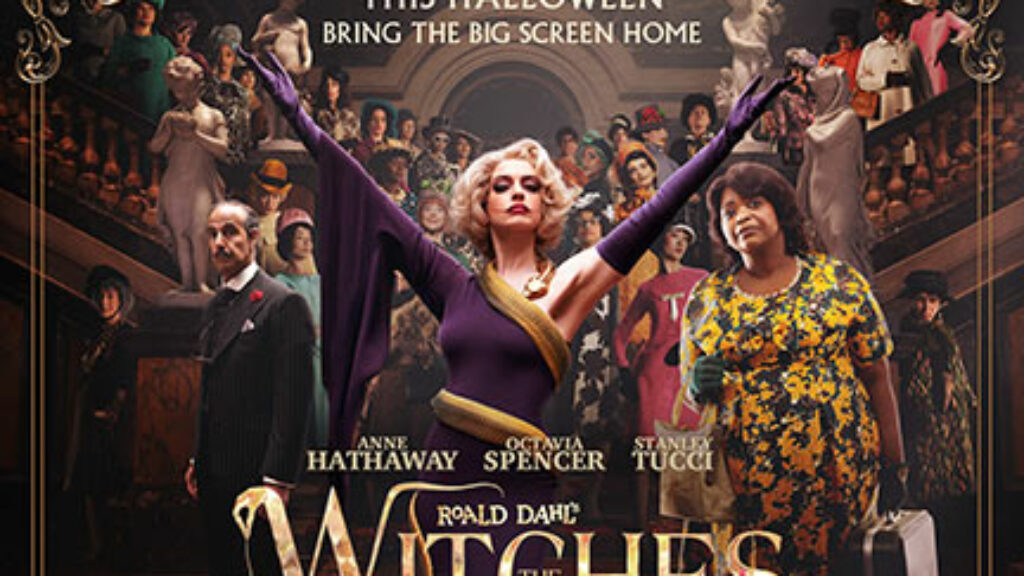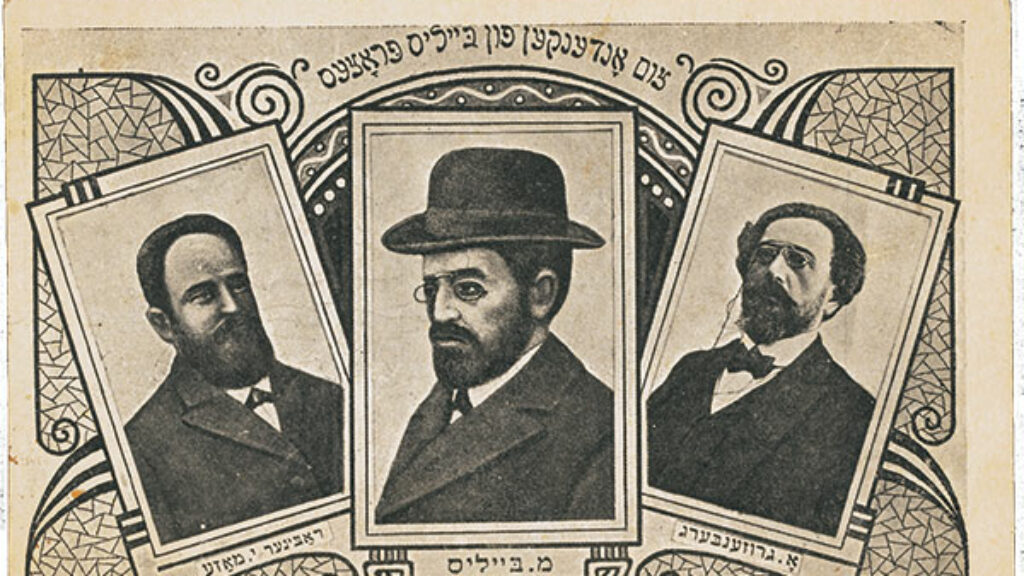Do Jews Count?
I would never have said this ten years ago, or even five years ago, but there apparently comes a time in the lives of those who write about Jewish identity when they have to decide whether to write about . . . it.
“Antisemitism” is too clinical a term for what I mean. It’s not evocative enough, as it doesn’t address the confusion and anxiety that Jews around the world have experienced in recent years—which is less about security guards at synagogues than about a much more subtle baseline reality of dismissing, shaming, and belittling by parts of the non-Jewish world. This is often cloaked in a performative righteousness that publicly sanctifies the dead Jews of the past. I found myself in this position three years ago, when I realized that the only thing my “mainstream” editors and readers wanted me to write about was, essentially, dead Jews—a topic I had been studiously avoiding as a Jewish novelist for the previous twenty years and about which I was now expected to wax beatific and inspiring, rather than enraged. Somewhere between the endless virtual beatdowns and the actual shootings and stabbings of recent years, I reached the point at which not addressing it felt impossible. I figured that if I was going to write a book I never wanted to write, I might as well go all in and call it People Love Dead Jews. The A-list British Jewish comedian and television personality David Baddiel got there first, publishing the book he never wanted to write six months ago, though it’s only now available in the United States. Like me, he doubled down. His book is called Jews Don’t Count.

Baddiel’s book expresses the most difficult-to-articulate aspect of contemporary antisemitism: not the physical or even virtual attacks but the gaslighting that accompanies them, the blindingly absurd and absolutely pervasive premise that such attacks are actually a form of righteous, if perhaps misguided, “punching up”—and that antisemitism, as a baseless and horrific dehumanizing hatred, therefore does not exist. The right-wing version of this absurdity (something something #WhiteGenocide) makes very little pretense toward logic, but the left-wing version (something something #PalestinianGenocide) has had more widespread buy-in among educated people. It is into this particular maw of self-righteous Jew-eating idiocy that the card-carrying progressive Baddiel, or as his Twitter profile succinctly describes him, “Jew,” bravely enters.
On its surface, this is a book about what cool people call “intersectionality” and how it has been weaponized against Jews, or as his title puts it, how “Jews don’t count” in the progressive movement’s otherwise comprehensive fight against bigotry. He begins with a series of blunt examples, such as the lead actor for a 2019 London production of the play The Color Purple being fired for homophobic comments she’d made in 2014—while no one objected to the production itself, even though the author of The Color Purple, Alice Walker, had published an insanely antisemitic poem in 2017 called “It Is Our (Frightful) Duty to Study the Talmud.” (“Are Goyim (us) meant to be slaves of the Jews, and not only / That but to enjoy it?”)
Nonprofit campaigns in the UK are devoted to defusing racism among football fans—but fans who routinely scream antisemitic insults are of zero concern. Progressives are appalled when nonminority actors are cast in roles written for minorities—but non-Jewish performers regularly play Jewish characters, and no one cares. While many canonical artists are publicly flogged the minute a racist comment of theirs is unearthed, the children’s writer Roald Dahl, who spoke proudly and publicly of his own antisemitism, is still celebrated in the UK with “Roald Dahl Story Day.” About an online trend describing Jesus as a “Black man” or a “person of color,” Baddiel writes, “The move to reclassify Jesus as non-white is good and historically accurate. The erasure at the same time of his Jewishness is neither. It accords in fact with centuries of the Church doing the same.” Baddiel borrows Noah Blum’s phrase, “Schrödinger’s Whites,” to describe the neat trick by which Jews are considered “white” only in contexts where “white” is a bad thing to be (inconveniently, white supremacists disagree that Jews are white). Don’t get him started on Jeremy Corbyn.
Baddiel patiently explains why his progressive friends so often refuse to see antisemitism as real. Jews being tagged as “white” is one explanation, which Baddiel thoroughly debunks by explaining that “white” is really used to mean “safe”—something he dismisses with a dismal series of statistics on antisemitic attacks. Another is that, as his fellow progressives have openly told him, “Jews are rich.” This is absurd for many reasons, several of which Baddiel unpacks. Weirdly, he doesn’t explain the most obvious one, which is that “Jews are rich” is itself the foundational stereotype that allows people to justify their antisemitism. Instead, Baddiel points out that the wealthiest minority ethnic group in both the UK and the US is actually Hindus, and this fact does not seem to interfere with them being considered vulnerable to discrimination. And finally, as he puts it with characteristic bluntness, “Fuck off about money. Because money doesn’t protect you from racism.” His own grandparents were rich German Jews; fat lot of good it did them. “It doesn’t matter how rich you are, because the racists will smash in the door of your big house that they know you don’t deserve anyway and only own because you’re Jews.”
Baddiel’s insistence that Jews belong in the British catchall term “BAME” (Black, Asian, and minority ethnic), a classification indicating vulnerability to discrimination that is basically never applied to Jews, might sound overplayed to American Jewish readers. The reality is that British Jews have been putting up with this crap for a long time and in ways that much more closely resemble “conventional” racism against other minority groups. The year I spent at Cambridge University in 1999 was the only year of my life when I routinely encountered social antisemitism of the sort I associated with my great-grandparents’ experience. One of my many lovely British memories is of a non-Jewish American friend of mine there who found that all our British peers assumed she was Jewish—despite her non-Jewish name and the fact that she was six feet tall. After a month, she finally asked someone why everyone thought so. That person blurted out, “Because you’re friends with that girl.” What’s most chilling about reading this book in 2021 is realizing how much of it now also applies in the United States. The football fans Baddiel describes chanting “Fuck the fucking Jews” feel far away, but the Twitter mob saying the same thing is already here.
By design, Baddiel’s arguments only apply in progressive settings. This does lead to a few blind spots, such as his argument that “one of the things that marks Jewishness out as different from other ethnicities is that it can be hidden.” I doubt that many haredim, who have not coincidentally borne the brunt of antisemitic street violence, would agree with that idea. But to his credit, Baddiel sees that this convenient and false concept of Jewish identity being concealable, and therefore not subject to bigotry, is itself a demonstration of bigotry.It is a byproduct of the appalling fact that Jews are routinely regarded as disgusting. As he puts it, “Jews don’t really suffer from being thought of as different as long as people don’t know they’re Jews: as long as they, like gays in the closet, hide.” This idea of disgust and shame is the key to Baddiel’s book and is its greatest insight. The point of contemporary progressive antisemitism is to make Jews publicly disgusting, chiefly by insisting, as all types of antisemites always have, that hatred against them is their fault.

Baddiel highlights a social media post from House of Lords member Baroness Jenny Tonge just after the Pittsburgh massacre: “Absolutely appalling and a criminal act, but does it ever occur to Bibi and the present Israeli government that their actions may be re-igniting antisemitism?” This post, widely shared on Twitter, is only remarkable for the high profile of its writer, its timing, and its all-in absurdity (the Pittsburgh murderer was a white supremacist goon who obsessed about the Hebrew Immigrant Aid Society). It is otherwise so commonplace that if you haven’t seen hundreds of tweets like it, you’ve never been on Twitter. But it demonstrates just how much progressive antisemitism relies on shaming. Another of Tonge’s tweets describes Zionism as “Just sickening”:
We would all like a safe haven to run to when the going gets tough, but we stay on and ask why it is getting tough. Why have the Jewish people been persecuted over and over again throughout history? Why? . . . If we discussed this we would be accused of anti Semitism, so better not, and so it goes on!
Baddiel parses this perfectly:
Her response is one of disgust: disgust with Jews, for both manipulating history (high status) and for snivellingly wanting a safe haven to run away to (low status). Disgust with Jews for failing to be the tough that gets going when the going gets tough (like, y’know, when you’re being herded naked at gunpoint with your children into a mass grave you dug yourself).
Would any other minority group, Baddiel asks, be accused by progressives of deserving the hate they receive?
There’s a fair argument to be made against what Baddiel is asking for here. Not because Jews don’t deserve the kind of official goodwill that other minorities receive from those claiming to fight the good fight, but because that goodwill is itself based on a flawed and disturbing premise—namely, that victimhood, or more precisely, powerlessness, is something inherently honorable. This idea has its roots in a historically Christian concept of suffering imparting nobility and is hideously linked to an even deeper and unarticulated belief that Jews deserve respect only when they are powerless—whether that means politically impotent or dead.
This disturbing concept underlies much of Baddiel’s discussion, but he addresses it only obliquely, through humor. Yet it is precisely here that Baddiel’s jokes don’t land, and that probably isn’t a coincidence. For someone so plugged into today’s pop culture, he sounds surprisingly like a Borscht Belt comic who equates being wimpy with being Jewish. And his jokes about Israelis—“Jews without angst, without guilt. So not really Jews at all”—sound written by someone who has never met a twenty-first-century Israeli or even watched Israeli TV. Such jokes are not merely ancient but also dissonant coming from someone who is clearly (and admirably) a bold fighter in the public square, engaged in the brave and thankless project of rejecting the internalized antisemitic legacy of angst and guilt. Subjecting oneself to social media mobs, as Baddiel seems to do daily, requires a cast-iron stomach.
I don’t happen to agree with Baddiel’s opinion, if one can call it that, of Zionism—the sum total of which seems to be, in his words, “Meh.” But it is refreshing and also revealing to see just how irrelevant it is to his argument. The truth is that Israel is irrelevant to contemporary antisemitism because “concern-trolling” about Israel at this point is simply one more tool for harassing diaspora Jews. Baddiel’s non-Zionism is actually an asset in seeing this clearly. He shares, for example, an innocuous tweet he posted about watching golf, to which one of his trolls replied, apropos of nothing, “Lucky you watching golf, no need to be watching what’s going on in Palestine.” As Baddiel puts it, “For a long time I used to hand out an award for this sort of tweet, called #BringIsraelPalestineIntoItSomeFuckingHow Award. Then I realised it was happening so often it was pointless.”
“Discussions” like this “about Israel”—or to be more accurate, vicious personal attacks on Jews, whether online or in person—are almost never actually about Israel, any more than blood libels in the Middle Ages were about whatever toddler happened to drown in the river that week. As fellow British Jewish writer Howard Jacobson put it in one of his columns way back in 2009, “This is the old stuff.” The reality here couldn’t be more obvious, but pretending it’s not happening—pretending, for example, that all these yoga instructors “ratioing” Jews (Twitter-speak for piling on) on social media are doing so because they want justice for Palestinians, or that artists painting murals of evil bankers straight out of Der Stürmer are really just passionate about addressing income inequality—is part of the gaslighting on which contemporary antisemitism relies. Hearing someone in Baddiel’s position come out and say all this feels deeply cathartic.
My only real complaint is that Jews Don’t Count isn’t exactly a book, and not only because it’s remarkably brief. Many passages in this book feel less like well-argued prose or a well-told story than like a hastily written email, or notes for a stand-up act, or a Twitter thread. In fact, a remarkable percentage of this book actually is from a Twitter thread. Many pages of this brief book are filled with screenshots taken from Twitter, written at a level of inanity that’s startling for anyone used to reading, well, books.
But, of course, the reductive stupidity of having to write about this at all is Baddiel’s point. I wish nobody had to write these books. But I’m endlessly grateful that somebody did.
Comments
You must log in to comment Log In
Suggested Reading
Digital Anti-Semitism: From Irony to Ideology
From tweeting trolls to digital incitement, a contemporary history.

Who Doesn’t Love Roald Dahl?
There’s nothing quite like the realization that what you thought was an empowering work of art is actually a 200-page exercise in trolling. It took me more than 30 years to figure out that I’d been trolled by Roald Dahl.

Blood Delusion
While the blood libel was rooted in Christianity, it also accused Jews of practicing precisely the opposite of what Judaism itself teaches, namely, not to consume blood.
Perish the Thought
Bruno Chaouat dares to ask whether, given the moral autism of so many of Theory’s luminaries when facing the basic political questions of our time, his own romance with it has been a similar waste.
Houthakker
The only hope, I fear, is to work quite hard at understanding exactly what problems people are trying to solve by reaching for that cheap and ready-made habit of thinking (anti {semitism, Zionism, Judaism, or any other name}).
The deeper our understanding of its role in particular moments and societies, the more hope we might have of helping the buyers to notice that these explanations ("our problems are caused by 'the wicked'" ) and these implicit solutions ("smite the wicked !" – often some variant of "the Jews" or "Israel") simply don't work. They always leave the real problems undiagnosed, unsolved, festering.
David Nirenberg's "Anti-Judaism" makes a helpful start, I think, in focusing less on the sheer destructiveness and irrationality – that, alas, we know too well already – and more on how exactly this thing works, what the buyers are really coping with, and trying to solve with it, and why it is cheaply available, and has been for some time.